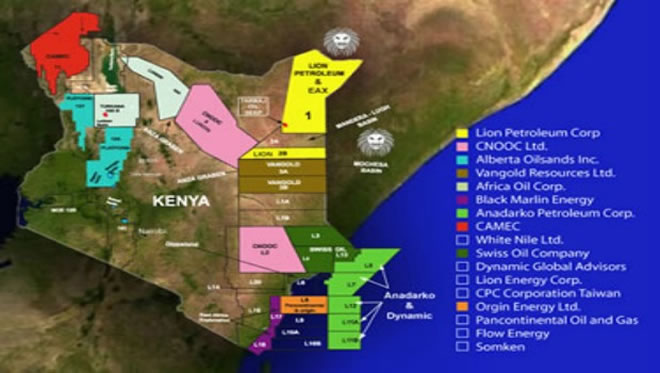

By Andrew Friedman
Friday, September 12, 2014
August 28, Somalia officially took a long festering maritime border dispute with neighboring Kenya to the International Court of Justice in the Hague. At issue is the sovereignty of parts of the Indian Ocean to the East of Kenya and Southeast of Somalia.
According to the AFP, Somalia argued that the maritime border should extend Southeast, in an area equidistant between the two states, while Kenya believes the line delineating water in its control should continue directly East.
In a statement, the ICJ said that Somalia asked “the court to determine, on the basis of international law, the complete course of the single maritime boundary dividing all the maritime areas appertaining to Somalia and to Kenya in the Indian Ocean.”
While it is maritime borders that make up the legal filing, the real issue between the two countries is oil and natural gas exploration. Interest in Kenya for oil and gas exploration has been drummed up in recent years.
According to a report by global financial firm KPMG, as recently as late 2012 Kenya had no proven oil or gas reserves. This changed when London-based multinational Tullow Oil reported discovering crude in the country’s Northwestern Turkana region.
Since that time the country has licensed exploration and development could begin in the next few years. In addition to inland oil reserves, exploration has turned to the country’s vast coastline.
Kenya recently opened eight new geographic blocks for sale to corporations to explore and develop.
According to to Reuters, seven of these new blocks lay within the disputed water. Not only does the contested ownership threaten to dissuade corporations from potential investment and exploration, it could put the contracts that have been previously signed between Kenya and multinational corporations at risk.
So who will win the dispute? Two caveats are necessary before diving into the case’s legal substance.
First, reading tea leaves on legal cases of all stripes can be a fool’s errand. Even clear-seeming legal disputes can have multiple layers and end in unpredictable ways.
Second, ICJ disputes can take a number of years. A recently concluded maritime dispute between Peru and Chile was originally filed in early January 2008. and was concluded in late January 2014, more than six years after proceedings were instituted.
An Equidistant Line
Until the maritime borders are resolved and ownership of the blocks ripe for exploitation is resolved, the corporations may not be willing to risk a voided contract. In short, while the borders are litigated, both countries are hurt financially.
Maritime boundaries are regulated by the United Nations Convention on the Law of the Sea, also known as the Law of the Sea Convention or Treaty.
In article 15 of the Convention, it states that “Where the coasts of two States are opposite or adjacent to each other, neither of the two States is entitled…to extend its territorial sea beyond the median line (of the low water point at the state’s coastline)…”
Under this framing, a line would be drawn that is equidistant between the coastlines of the two states for natural resource sovereignty as Somalia requests. Such a line would be far from the due East line that Kenya desires..
The article allows for three potential exceptions to the rule.
First, an agreement between the two states. According to Somalia’s filing, while diplomacy has been attempted, it has failed and thus no such agreement exists. Second, “historic title” to the waters could negate the equidistant line. As could “other special circumstances.”
For Somalia’s part, the country alleges that neither a historic title nor other special circumstances exist to negate the general rule. Kenya is yet to respond and has not indicated how it will, whether it will present evidence of historical title or special circumstances.
“Special circumstances” under the convention are difficult to meet.
In a 2009 case between Ukraine and Romania determining maritime boundaries in the Black Sea, the ICJ held that “an equidistance line will be drawn unless there are compelling reasons that make this unfeasible in the particular case.”
Clive Schofield, a Professor of Law at Wollongong University in Australia and the Director of Research at the Australian Centre for Ocean Resource and Security, has written that “although such expansive claims are unlikely to disappear in the foreseeable future given the great reluctance shown by coastal States to pull back from even their most clearly excessive practices, the overall trend has been to award such extreme claims no effect, notably in the delimitation of maritime boundaries.”
With this in mind, unless Kenya is able to come up with compelling evidence of a historic title to the area or special circumstances, it seems unlikely that there will be such a rampant departure from the general rule of an equidistant line. This does not, however, mean that coastal states will ever cease such claims.
Andrew Friedman is a human rights attorney and freelance consultant who works and writes on legal reform and constitutional law with an emphasis on Africa. He can be reached via email at [email protected] or via twitter @AndrewBFriedman.